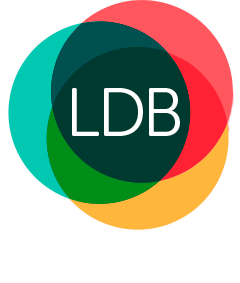Tax for superannuation members: Contribution rules post 30 June 2017
February 1, 2018

The rules and limits on super contributions for super funds changed on 1 July, 2017. Here’s what you should know to remain informed and compliant.
Concessional contributions (employer super guarantee contributions (SGC) and salary sacrifice contributions and personal contributions for which a member will claim a tax deduction):
- $25,000 per year under age 65
- Applies to members between the ages of 65 and 75. As long as you meet the work test first (40 hours of paid work in a single 30-day period), you can still contribute $25,000 per year
- Once you are 75 or older, only mandated (typically SGC) contributions can be made however, these could be up to $25,000 for the year.
Non-concessional contributions (usually personal contributions on which a tax deduction will not be claimed):
- $100,000 per year for members under the age of 65
- $100,000 per year for members between 65 and 75 after the work test is met
- Non-concessional contributions cannot be made once you are aged 75
- Members under the age of 65 with a total superannuation balance of less than $1.4 million can contribute $300,000 in one year or over a three-year period by utilising the bring forward rule
- Where the total super balance is between $1.4 and $1.5 million, the cap reduces to $200,000 over two years
- For balances between $1.5 and $1.6 million the cap is $100,000 (e.g. no bring-forward period applies)
- Non-concessional contributions can’t be made if the member’s total balance exceeds $1.6 million.
Taxing the excess
Exceeding either cap has tax consequences.
In the case of concessional contributions, the excess amount will be added to your personal taxable income and taxed at your marginal rate.
This tax can be paid either from personal funds, or by withdrawing up to 85% of the excess contribution.
For non-concessional contributions, the excess can be withdrawn from the fund without penalty. However, the earnings on the excess will be added to your taxable income and taxed at your marginal rate.
If the non-concessional excess is not withdrawn, it will be taxed at the top marginal tax rate plus Medicare levy. This provides a strong incentive not to exceed the contributions caps.
The Australian Taxation Office (ATO) will identify where there is an excess contribution and send out the relevant paperwork with options and instructions.
Plan early
LDB’s Superannuation Manager Kathy Smith said the changes reduce the amount that people are able to quickly contribute to superannuation.
“Under the old caps people could wait until closer to retirement and contribute large amounts to super,” she said.
“The new caps mean that you now need to contribute over a number of years to build up your superannuation balances. For small business owners, taking advantage of the small business capital gains tax (CGT) concessions is an even more essential strategy to increasing superannuation benefits.”
Kathy also said that retirees need to keep a closer eye on the rate at which they draw down on their super savings if they want to preserve their balances.
A range of strategies
Superannuation remains an attractive vehicle in which to build retirement savings.
However, as members approach a total super balance of $1.4 million they need to start thinking about other strategies and vehicles, such as making the most of personal tax-free thresholds, or using trust and company structures.
“A significant number of people will be affected by the new caps. We also see excess contributions made from time to time, usually in error,” Kathy said.
“As the best option for dealing with these events depends on individual circumstances, it’s really important that anyone finding themselves in these situations seeks good advice.”
Talk to the superannuation experts
LDB’s specialists are able to provide expert advice on all aspects of superannuation and tax, including self-managed super funds.
Need help? Give us a call on (03) 9875 2900 or complete the form below to find out how we can help you.
